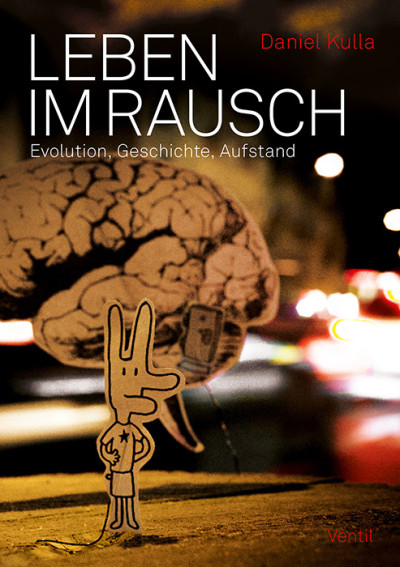The best answer to conspiracism is class struggle
May 13th, 2020After Germany introduced its pandemic protection measures, which were internationally considered to be rather unstrict and much marvelled at, protests against them, demanding their “easings” or even a full end to them, first appeared online and then from late April more and more in the streets. Media coverage first hooked on the so-called “hygiene demonstrations” at Rosa-Luxemburg-Platz in the center of Berlin from whose alleged composition quickly the narrative of a nationwide “querfront” formed, a political front linking left and right. Even though most of the other heavily conspiracist protests came predominantly from the right (widely mirroring and often continuing the anti-refugee mobilizations from 2015ff.) and although most leftist rallies during these last weeks were concerned with the situation of the refugees in camps in and around the European Union, with the social inequality in the impact of pandemic and measures, as well as with the still ongoing climate catastrophe, still some on the Left agreed with the “querfront” assessment and thus helped, as often before, in fostering the infamous but widespread idea of a political “horseshoe” with the extreme left and right converging.
There isn’t much certainty in the numbers, but in general it seemed that approval of, if necessary, economically damaging measures much rather came from the Left, from socially below, from the workers, and also much rather from women, and where it came from conservatives it appeared in much more instrumental thought. Propaganda for softening the measures, for undermining or completely abolishing them and for prioritizing “the economy” came much rather from the right, from socially higher up, from men, from the economically liberal or libertarian political spectrum. Leftists had issues not so much with the measures themselves but rather with their enforcement by police and authorities which seemed necessary exactly because too many of the others simply didn’t comply.
Not only in Berlin the Grundgesetz (the German Constitution) was fielded against the measures which explains the attractiveness of the protests to small and wannabe bourgeois (self-defined) Leftists who only begin to show interest for basic rights when, for a change, they are themselves affected, and who then start talking about the police as if they see it in action for the first time. The class character was also visible in the regional distribution and general appearance of the protests – and that matches the historical record: in 1919 an “Anti-Mask League” gathered in San Francisco protesting the mandatory protection against the deadly spread of the Spanish Flu, the participants were described as “public spirited citizens, skeptical physicians, and fanatics”.
As on other occasions, the small and wannabe bourgeoisie yelled and “worried” omnipresent in the media, while the uncomplaining workers, accustomed to their relative invisibility, prepared themselves for distancing already before the official declarations, stocked up household and food supplies, sewed masses of masks at home weeks before the government recommendations, kept taking care of everything and, well, going to work. The further step of refusing the now so-called “non-essential” work, as had already been done elsewhere, would have been easier to take if left-wing discussions wouldn’t have been so focussed on the distinction from the “nutters” on the street and their pathologization, but more on concrete steps for self-organization of the workers, or simply on helping them. There were at least, a little late though, clear statements from the Left Party (Die Linke) about further limiting the spread of the virus and, if necessary, forcing companies to comply with that.
In this context, the search for the most blatant and erroneous conspiracy narratives is (as always) itself a part of the problem – it hardly helps in understanding how and where exactly the search for explanations for a confusing situation becomes the search for almighty, sinister cabals. Viruses are a classic conspiracist topic: the invisible world government uses an invisible weapon or pretends an invisible virus – this is where the deniers separate from those who see a direct attack; both, however, aim, even without a large conspiracy, at keeping business running or at starting it up again: “it’s just a cold” or “now more than ever!”
This means that the danger of a reactionary escalation does not primarily come from now widely publicized conspiracists (like Ken Jebsen, Jürgen Elsässer, Xavier Naidoo or Attila Hildmann) – as much as they are important for the direct spread and shaping of ideas and as much as their followers must be directly resisted – but from capitalism pushing for business, and its speakers in the form of all those heads of state and regional governments who put their economic and political-strategic interest into practice very directly, and who only have to resort to ideology in their justifications.
Modern forms of domination rely particularly much on the assertion of approval, they have to organize a favorable election result or, if necessary, another form of acclamation, and this is by no means primarily a deception, but actually a matter of establishing this type of consensus (cf. US Constitution: “consent of the governed”, elsewhere “will of the people”, “volonté générale” etc.) in order to achieve the enthusiastic participation of as many people as possible while having to fight as little refusal and resistance as possible. That means that at least the attempt must be made to somehow mediate between this articulated popular will and practical politics – and that works best if one adheres to the articulations that fit into the picture, that is, to those that already suggest one’s measures or to those that can serve as particularly drastic examples of the obliquity of differing opinions.
And this mediation navigates by emotion (as in recent discussions about the nationalist wave in Germany in 1990ff. which argued a lot with the feelings at that time). There are emotions that are articulated very clearly and audibly and that can easily be exploited for politics. But the juxtaposition is not emotion vs. reason at all – it’s rather about different kinds of emotion and reason. Emotions in the direction of “We want to go outside”, “We don’t want to be told what to do”, “We are afraid for our economy, existence, competitive position” etc. are very visible and are eagerly picked up by everyone who tries to foster their competitive position despite the pandemic and regardless of protection. But on the other side there is also emotion, there is also fear, especially fear for others – and compassion is also an emotion, even if that gets a bit lost in the whole situation now.
Governments could just say: People have to die for business to run. And a growing number of officials say that more and more clearly, but for all those who have too much scruple for it and who can’t bring themselves to openly support that, ideological justifications become necessary, in matching levels of blatancy: for some, the mere suggestion suffices that the so far apparently better prepared countries in Asia are also “behind it” and have deliberately caused the pandemic, which turns the whole thing into a competitive self-defense situation (according to a survey, half of the British who were asked in April believed that the corona virus was man-made; especially the US government never tires of putting all responsibility for the pandemic with all available means and in the sound of the conspiracy culture on China); for others, this must be further exaggerated, depending on how clearly the information that is accessible and believed to be credible contradicts this. After all, it shouldn’t really come out in the end that what the others are doing works better, and so far the body count has traditionally been a core argument of anti-communism. So it also becomes important to declare one’s own ruthlessness to be a struggle for freedom so that, for example, mandatory vaccination is labelled as “forced vaccination” as part of a “corona dictatorship”. Depending on how deep the contradictions are and how they are communicated ideologically for the individual, digging has to go even deeper and additional manipulations have to be assumed.
Under normal circumstances, ideology is primarily the narrative of the good (own or desired) form of domination and the bad form of domination of the respective others, “good capital” points at “bad capital” and yells: “Stop the thief!” (see: “Behind the scenes: always the others!”) Especially in long-lasting and global crisis situations, these ideological motifs grow together to form an increasingly open anti-Semitic narrative, and so the topical threads “Gates Foundation is planning epidemics for profit and population control”, “Pharmaceutical lobby wants forced vaccination with microchips”, “5G cell towers are used for surveillance, body and brain manipulation”, “Soros Foundation wants to break liberal-nationalist resistance everywhere” and “Elite extracts super drug adrenochrome from kidnapped toddlers” (“QAnon” or previously “Pizzagate”) are currently combining to the general narrative that the “corona dictatorship” now finally breaks societies that have not yet been worn down by mass immigration (right-wing version), incitement of the peoples by the western elites (traditional left version), incitement by Putin (neo-conservative version), and gets them ready to form the population-reduced, totally monitored, socially atomized New World Order.
And the most convenient reaction now is to make these particularly clear forms of ideology the main subject, to separate them from the rest of society by pathologizing them, or to allow connections only as ammunition against the other wrong political half of the bourgeois-democratic game. If some on the Left now focus on how (other) Leftists are particularly susceptible to those “delusions”, then they join in.

The crucial difference in regard to the central decisions on pandemic protection right now is that there is simply no contradiction for right-wing liberal or fascist people to say: the competitive position of our nation, i.e. our all-classes collective of the brave, is more important than the life of some weak, sick and poor. But this is in contradiction to practically every left-wing view. When on the left side the desire for “opening up” can be seen now, a whole other set of ideological contortions have to be undertaken to make it commensurable and to justify it in front of oneself. How much ideology has to distort reality, shows how much scruple and doubt has to be bridged, and not how “insane” people intrinsically are (even if some might suffer from actual mental illness).
The common thought shortcut to talk about “delusion” rather than about ideology, must be abandoned. Focussing on extreme positions has always been a substitute act. To understand ideology not primarily as an expression of the social reality, but some of its more dazzling representatives as a major cause of that, is police logic, and that is why this type of analysis can be done without much problems for a wide variety of state institutions and organizations. It is a possible moment of agreement with domination, a part of a justification discourse that still works in a similar way to 1990ff. (“They all wanted it that way”, “There you have it, they can’t be helped” etc.) The better I can show that the vast majority of people are simply screwed-up beyond salvation and always want the wrong things, the easier I can refrain from devoting myself to the laborious and less career-promoting organization of the workers.
Because the biggest problem at all is still the insufficient level of self-organization of the working class (in the widest sense of all those who have to live on someone in their family to try and sell their labor power), which means that it cannot take the necessary protective measures itself and cannot master crisis situations alone, but has to rely on the institutions of the state, which, although the workers pay it and keep it going, is not theirs.
Roughly speaking, there are state and social solutions: shutting down (still or again) running non-essential production can be brought about by state prohibition or by strike. The supply of protective masks etc. can be improved through government purchases/subsidies or through consumption cooperatives, DIY production etc. Regulating the crowded coexistence and maintaining the distancing can be taken care of by the police or by neighborhood and aid groups. In practice, of course, both happen in different proportions.
There was a long wait for the state, but the state’s calculation first revolves around competition with the other states; the needs and protection of its population are always subordinate to that. There is as much state as self-organization does not succeed. Or vice versa: the less the working class manages to organize its needs and protection itself, the more power it gives to the state.
Changes in society often start when something that the social order no longer manages to provide is taken over by the people themselves. So if we want the planet to remain habitable, we have to produce differently, and in order to do this, we have to be able to decide how and what is produced, and in order for that we all have to own the factories and the land. If we want all of us to remain as unharmed as possible, we all have to protect ourselves and each other – from the violence of the social circumstances that we have internalized and continue to carry with us, from the current catastrophes and from those that are yet to come …

This text was originally requested by a bigger left-wing magazine and then rejected because they preferred something about “why leftists are so vulnerable to conspiracy theories”. Here is the German version.

















May 13th, 2020 at 07:22
[…] Weitere häufiger gegebene Antworten zu Fragen der Zeit The best answer to conspiracism is class struggle […]
May 27th, 2020 at 02:08
[…] Dass es dabei um mehr als um eine Verbesserung der Arbeitsbedingungen geht, macht der Publizist Daniel Kulla in einem Aufsatz mit dem Titel »Die beste Antwort auf die Verschwörung ist der Klassenkampf« deutlich. […]